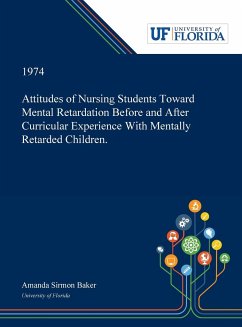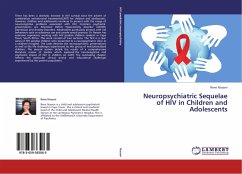
Attitudes Towards Mentally Ill in Ndera Neuropsychiatric Hospital
Versandkostenfrei!
Versandfertig in 6-10 Tagen
36,99 €
inkl. MwSt.

PAYBACK Punkte
18 °P sammeln!
Health care professionals should be explicitly made aware of the impact their judgments of disadvantaged groups can have on their caring role. By drawing attention to these often ingrained or subconscious judgments, they may be able to overcome any inherent prejudice and meet the demands of their patients irrespective of individual circumstance. This study represents one of the first to explore professionals' attitudes towards the mentally ill. It is hoped that this work will highlight the need to explore the influence of attitudes in the delivery of high quality healthcare. The provider-patie...
Health care professionals should be explicitly made aware of the impact their judgments of disadvantaged groups can have on their caring role. By drawing attention to these often ingrained or subconscious judgments, they may be able to overcome any inherent prejudice and meet the demands of their patients irrespective of individual circumstance. This study represents one of the first to explore professionals' attitudes towards the mentally ill. It is hoped that this work will highlight the need to explore the influence of attitudes in the delivery of high quality healthcare. The provider-patient relationship is at the heart of effective treatment and the detrimental impact of prejudicial judgments on this relationship should not be ignored. A summary interpretation of the main findings in this thesis reinforces the assumption that negative attitudes towards people with mental illness received in Ndera neuropsychiatric hospital are in existence, even though the majority have favorable attitudes toward the mentally ill. Professionals with different roles report different attitudes, and this suggest that they would behave differently towards patients with mental illness.












